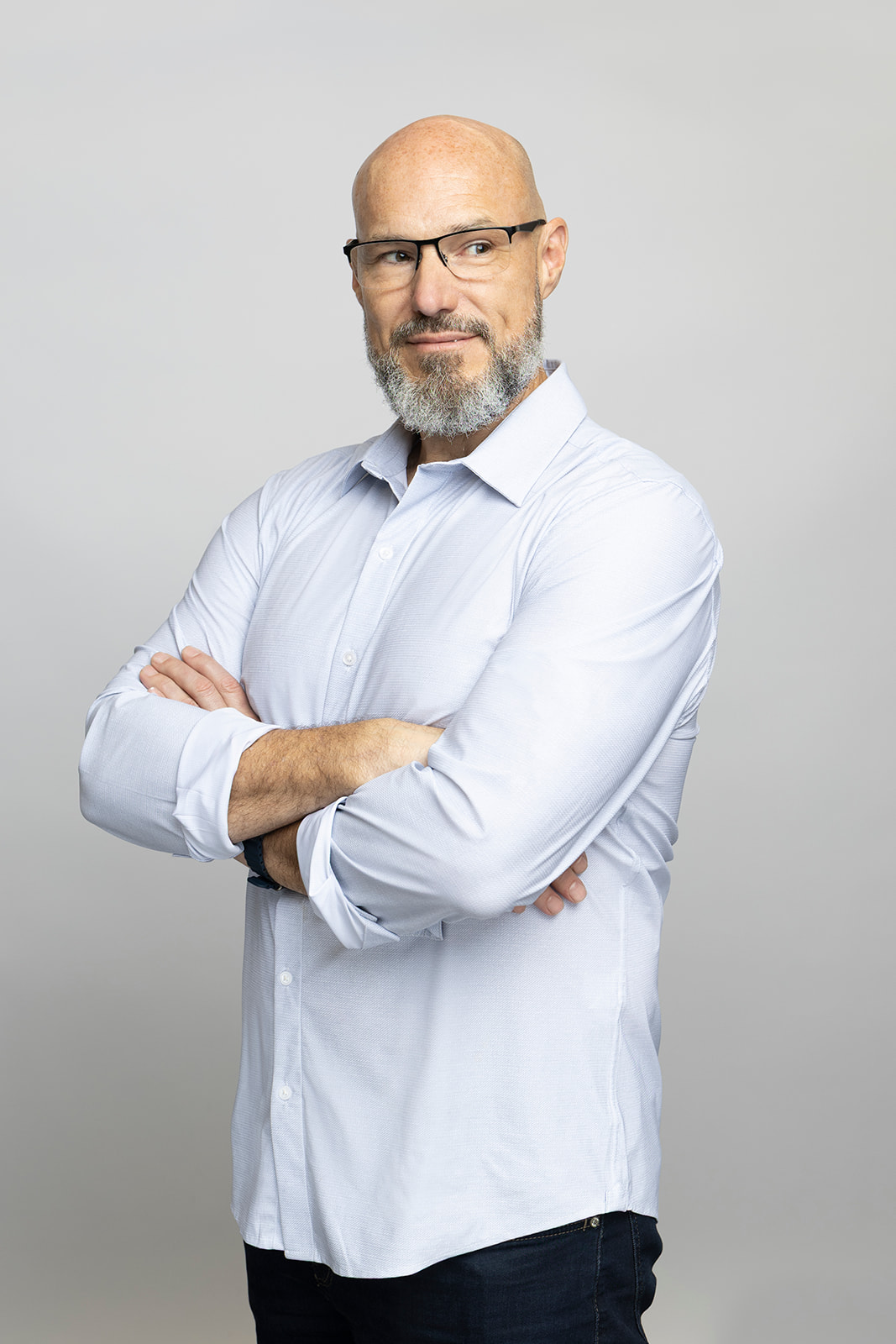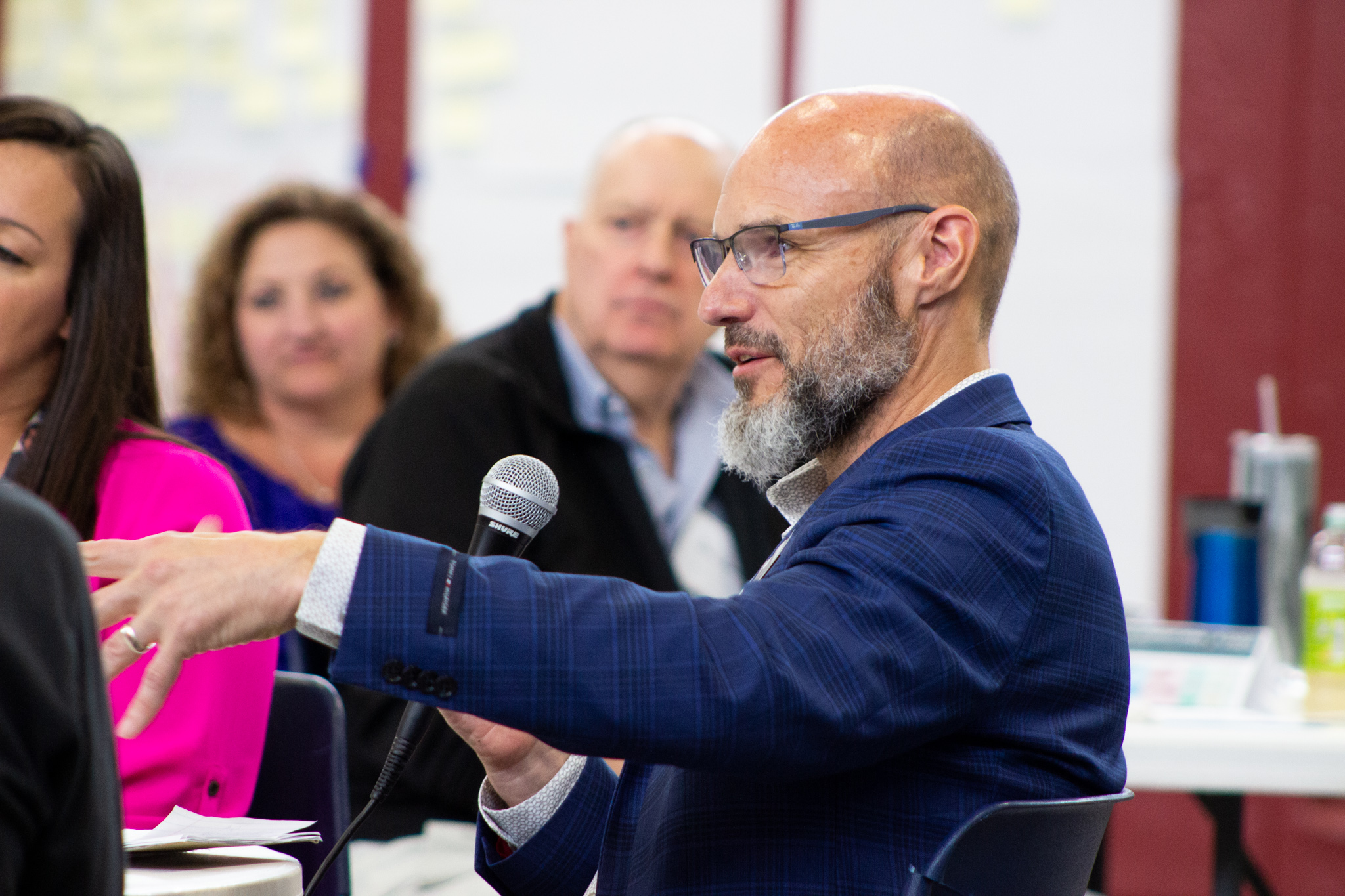

Douglas Smith shared their story and experiences with us recently and you can find our conversation below.
Douglas, we’re thrilled to have you with us today. Before we jump into your intro and the heart of the interview, let’s start with a bit of an ice breaker: What do the first 90 minutes of your day look like?
I wake at 6:15am, pour coffee, which was set to drip at 6:00am, add hazelnut creamer, and take two sips. The oldest of my three dogs lets out the deepest howl of urgency, demanding breakfast. I fill their bowls as quickly as I can. In less than 60 seconds, they are finished and I let them outside. I then grab my cup of coffee and sip it and reflect on my many reasons to be grateful. Soon, the dogs want inside, and the three of them wait outside our bedroom, tails wagging. I go to pour a cup of coffee for my wife. She prefers a splash of 2% milk and Splenda. I pour whipped cream on top and sprinkle cocoa powder. She’s very precise in what she wants. I take the coffee to the bedroom. I open the door quickly and race to put her coffee cup on her night table and rush around the bed to get on the mattress and put my arm around her before my dogs jump on the bed and put their snouts into her ear. Both experiences are very very different ways to wake up. As my wife awakens, I tell her things I love about her. When she’s finally awake and sitting up in bed, I return to the kitchen to make a protein smoothie, sipping it while I compete against my wife at Wordle. She always wins. I diverge from her and attempt to solve the New York Times Crosswords, finishing approximately 25% of it before giving up. By the end of the 90 minutes, we have the dogs leashed, ready for a walk.
Can you briefly introduce yourself and share what makes you or your brand unique?
I’m Doug Smith, Author of The Path of Rocks and Thorns: Leadership Lessons from a Prison Cell, which is a memoir disguised as a leadership book, chronicling my descent from social worker and adjunct professor into mental illness, drug addiction, and six years of incarceration in Texas prison. I describe key turning points in prison, and how I infuse them into leadership. Everyone who reads it will feel inspired. I’m also a leadership coach facilitator, which means that I don’t do leadership training so much as create an experience of leadership principles, group coaching, and small group engagement. It’s so much fun! I have a range of interesting clients, but I specialize in elevating the leadership capacity of people with lived experience of mental health and substance use challenges, past trauma, and/or incarceration. I also work with companies and nonprofits who discover that their team members are actually human and bring that complexity with them into work every day. I love to see people transform their most challenging life experiences into their most valuable leadership assets. It’s like watching people become themselves. I earned my masters in social work at UT Austin and I’m a certified coach.
Great, so let’s dive into your journey a bit more. What did you believe about yourself as a child that you no longer believe?
I believed that I was worthless. The worldview came from a combination of early childhood abuse and parental divorce. It sounds like such a tragic and awful thing to think about yourself, but that’s how a lot of kids deal with a sense of abandonment. By making it about themselves, feeling worthless saves them from the terrible realization that their parents are imperfect and sometimes can’t be trusted to protect them. While it might serve the child, the worldview ultimately fills them with shame that they carry into adulthood. Shame brings unsatisfying relationships, substance use, and career sabotage. For me, the shame demolished my career and led to incarceration. In prison, I had to learn to love myself no matter what. I knew that I’d never be able to live a meaningful life outside a prison cell if I didn’t let go of the shame. Today, we have a mantra in our household: “We don’t do shame in this family.”
If you could say one kind thing to your younger self, what would it be?
I’d say, “You and I are exactly the same. You just don’t know it yet.”
Next, maybe we can discuss some of your foundational philosophies and views? Where are smart people getting it totally wrong today?
Nearly all my highly competent coaching clients wrestle with something they call “Imposter Syndrome.” I want to get rid of the term. It pathologizes normal emotions. It suggests that it must be resolved or resisted rather than welcomed with curiosity. The term makes an inaccurate assertion that the emotions we associate with the “syndrome” are universal, when in fact they are highly individualized.
Inadequacy, acceptance, and belonging are not feelings, They are stories we tell ourselves. They exist within a complicated belief system shaped by very real experience. Anxiety, fear, and embarrassment, on the other hand, are feelings, and feelings want to be heard and felt. They are your body’s signal to pay attention. Feeling anxious is a very normal emotion associated with new challenges, spurring you into productive action to grow and improve. Fear might be a guard against pressures to act and relate in ways that are outside of your values or comfort zone. Embarrassment might be a totally normal reaction to saying or doing something embarrassing, reminding you, “Don’t do that again!”
Whatever the emotion, sitting with it and listening with curiosity, however uncomfortable, will yield insight you can use to shape future action. With my clients, this happens 100 percent of the time. And, we never again have to talk about “imposter syndrome.”
Okay, so before we go, let’s tackle one more area. Have you ever gotten what you wanted, and found it did not satisfy you?
I started my own leadership development and coaching practice. For years, I dreamed of going out on my own. I worked extremely hard to get there. I taught two classes at a time at UT Austin as an adjunct to earn the extra money I needed to afford the coach training course. I did this while also working full time supervising a public policy advocacy team, preparing for the legislative session. I continued the training course during the session, often having to duck out of committee hearings to find a quiet spot for a practice session. The preparation paid off. By the time I left my full time job to run my practice full time, I had three months of cash flow and six months of contracts.
But I learned quickly that no amount of success was satisfying. The pressure to deliver a quality service never went away. No matter how many months of projected cash flow appeared on my balance sheet, I always asked myself, “Well, what about the months after that?” As a result, I worked every day, including Saturday and Sunday, It impacted my mental health. My wife said to me, “It’s like you are here but not here.”
Part of me writing a book was not simply to propel my brand and business forward. It was a sincere effort to dive deeply into my beliefs about self worth. I shifted more of my focus to mental health and relationships. I stopped working on Saturday and used only a part of Sundays to prep for the week ahead. I stopped working past 6pm, and increased my recovery supports. Most importantly, I started being more open with my wife about what I was feeling.
I still feel anxiety about my practice. Self doubt continues to whisper into my ear. The difference now is that I practice acceptance and nonjudgement. Thoughts are just thoughts. Feelings are just feelings. The are great wisdom advisors, terrible directors. I feel the feeling and return to what is most important.
Contact Info:
- Website: https://www.d-degree.com
- Instagram: @dougsmithmsw
- Linkedin: https://www.linkedin.com/in/doug-smith-mssw/
- Facebook: https://www.facebook.com/Doug2theDdegree
- Other: Substack: @dougsmithmssw

Image Credits
First photo:
Michael James, Elite Headshots













